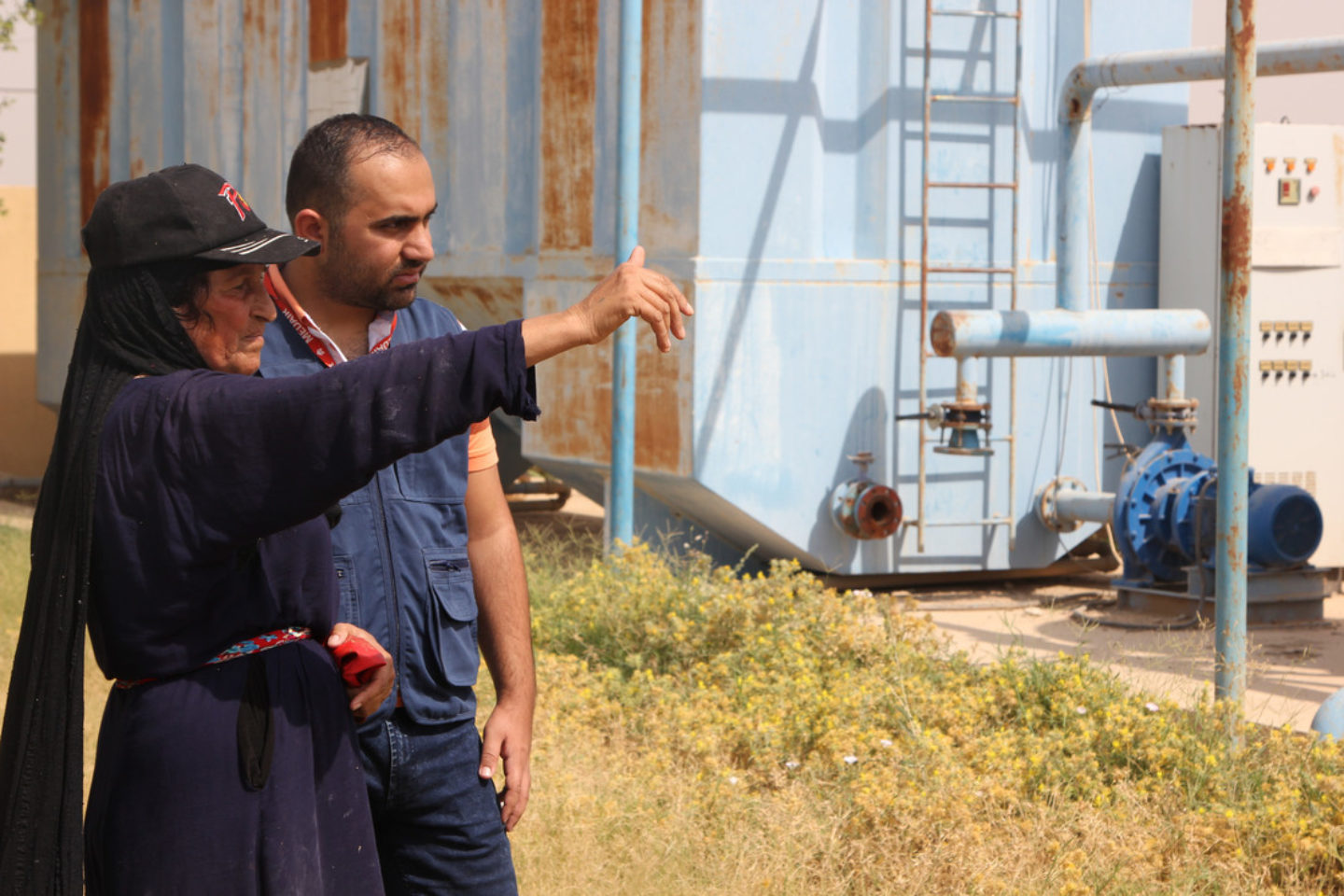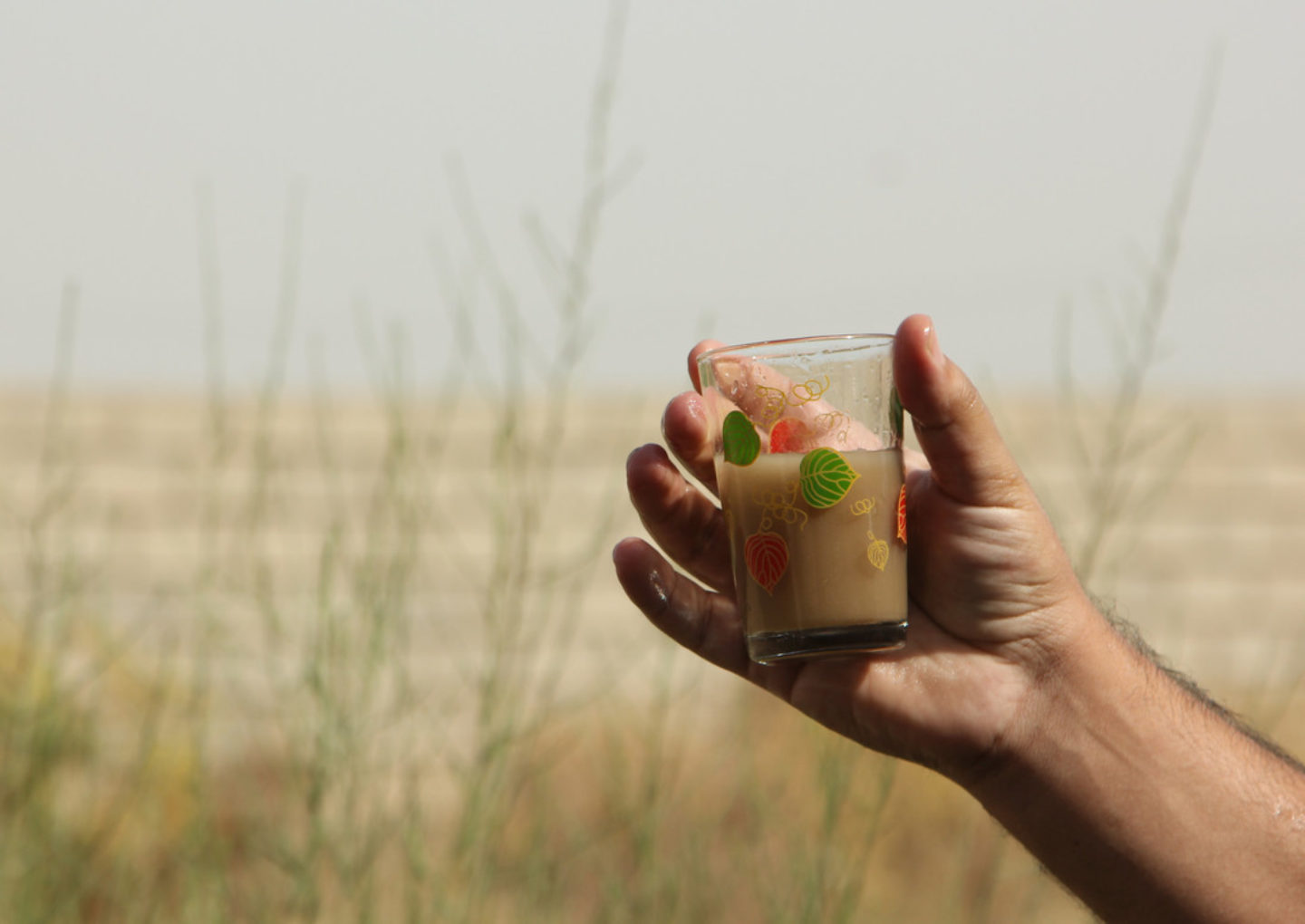Stories from Iraq
This is My Land
When you ask people from Hawiga, Iraq, what life was like before 2014, they always reply the same way: “Beautiful.”
They tell us they had gardens with fruit trees. Their families lived nearby. They had farms with small herds of sheep and goats. There was clean water and enough food for everyone.
Today, the people of Hawiga are recovering from extensive damage caused during the conflict. Homes need major repair. The ground where vegetables once grew is now cracked and dry. People are rebuilding however they can, using scrap materials to cover missing doors and windows.
Water for drinking, cooking, and bathing comes from a contaminated irrigation ditch shared by livestock. The water treatment plant that once supplied three villages with safe drinking water is silent and inoperable.
Across the road from the defunct water treatment plant, however, is a rare patch of green. A row of tall sunflowers parts as a woman wearing heavy gloves and rubber boots walks through, her stride strong. Her name is Sket, and she is a force to be reckoned with.
“This is my land,” says Sket, indicating the treatment plant. She brushes flies away from her face, glistening with sweat from working in her field. “I gave it to the village for the water plant. For eight years I looked after this plant and did the maintenance. Everyone had clean water.”
 Sket gives Medair’s water engineers information about the treatment plant.
Sket gives Medair’s water engineers information about the treatment plant.
Even when Hawiga was controlled by armed groups, Sket still performed routine maintenance on the plant until it was looted in 2016. Since then the only source of water has been an open irrigation ditch which sometimes slows to a brown, muddy trickle.
“When I first came here,” says Hazhar, WASH Project Officer with Medair, “people were telling me, ‘Please fix the water, then we will not need anything.’”
Medair’s water and sanitation engineers assessed the possibility of restoring the water treatment service, and Sket shared with our team what she knew to be missing and broken. Despite having fled for her own safety, and now faced with rebuilding her home and replanting her crops, Sket remains committed to her community.
 Dirty water from the irrigation ditch.
Dirty water from the irrigation ditch.
“If you fix the treatment plant, we will be able to have clean water again,” says Sket. “Without clean water, some people have already become ill, and some have skin problems. If they knew the plant was running again, more families would return.”
Thanks to your support, Medair made a commitment to repair the water treatment plant and replace the pumps and pipes that were stolen. “I will tell everyone that you are fixing the water plant and they will come back now,” says Sket, overjoyed to hear the good news. “Everyone wants to work on their land and to fix their homes, but they need water. Thank you!”
Your gift helps restore hope to women like Sket and her community. Please give today.
Update: The water treatment plant in Hawija district is now fully rehabilitated and operational, and has been handed over to local authorities. Thank you donors!
In Iraq, Medair provides vulnerable people with shelter, health care, psychosocial support, safe drinking water, latrines, and hygiene. Medair’s work in Iraq is supported by EU Civil Protection and Humanitarian Aid, United States Agency for International Development (USAID), and generous private donors.
This content was produced with resources gathered by Medair field and headquarter staff. The views expressed herein are those solely of Medair and should not be taken, in any way, to reflect the official opinion of any other organisation.”
